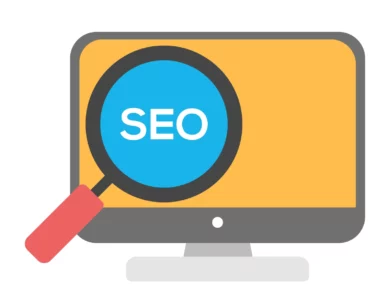
Table of Contents
Everything You Need To Know About Search Engine Optimization
SEO is an essential aspect of digital marketing that helps businesses improve their online visibility and drive more organic traffic to their website. By implementing the best practices and techniques of SEO, businesses can improve their website’s ranking on SERPs, drive more traffic to their website, and ultimately boost their business growth and revenue. Search engines like Google and Bing use complex algorithms to determine the ranking of a website on SERPs. These algorithms take into account various factors like keywords, content quality, backlinks, site structure, and more. Therefore, optimizing a website for search engines requires a multi-faceted approach that involves a range of techniques and strategies.
What Makes SEO Popular Across the World?
SEO is popular worldwide because it provides a cost-effective and sustainable way for businesses to increase their online visibility, reach more potential customers, and drive business growth. By optimizing their website and content for search engines, businesses can attract more traffic and leads over time, and ultimately increase their revenue and profitability.

It is not limited by geographic boundaries and can help businesses reach a global audience. By optimizing content for multiple languages and targeting specific countries or regions, businesses can expand their reach and attract customers from around the world.
It provides measurable results through analytics tools that allow businesses to track their website’s performance and identify areas for improvement. This allows businesses to refine their SEO strategy over time and continually improve their website’s performance.
What Is The Significance Of Search Engine Optimization?
SEO helps businesses improve their online visibility by optimizing their website and content for search engines. This leads to higher rankings on search engine results pages (SERPs) and increased visibility to potential customers.
- Unlike paid advertising, which stops working as soon as the ad campaign ends, SEO is a sustainable strategy that can continue to drive traffic and leads over time.
- This is because the content and optimizations made through SEO can continue to attract traffic to a website long after they have been created.
- Compared to traditional advertising methods like TV or print ads, SEO is much more cost-effective.
- The cost of SEO is primarily in the time and resources required to create high-quality content and optimize the website’s technical structure, rather than paying for ad space.
What Are The Different Types Of Search Engine Optimization?
Based on the experience of SEO experts, we can there are three types of SEO –
Each of these types of SEO is important and plays a different role in improving the website’s ranking on search engine results pages (SERPs). A comprehensive SEO strategy should incorporate all three types of SEO to ensure that the website is optimized for both search engines and users, and is able to drive more organic traffic and leads over time.
- On-Page SEO: This type of SEO focuses on optimizing the website’s content and technical structure to make it more search engine friendly. It involves optimizing the website’s URL structure, Meta tags, header tags, keyword density, and other technical elements of the website. It also includes optimizing the website’s content for target keywords and ensuring that the content is high-quality, relevant, and engaging for the user.
- Off-Page SEO: This type of SEO involves building backlinks from other websites to your website. Backlinks are an important factor that search engines use to determine the quality and relevance of a website. It also includes social media marketing, influencer marketing, and other techniques that help promote the website and increase its online visibility.
- Technical SEO: This type of SEO focuses on optimizing the website’s technical structure and performance. It includes improving website speed, optimizing URLs, using header tags, and other technical optimizations that help search engines crawl and index the website more effectively.







